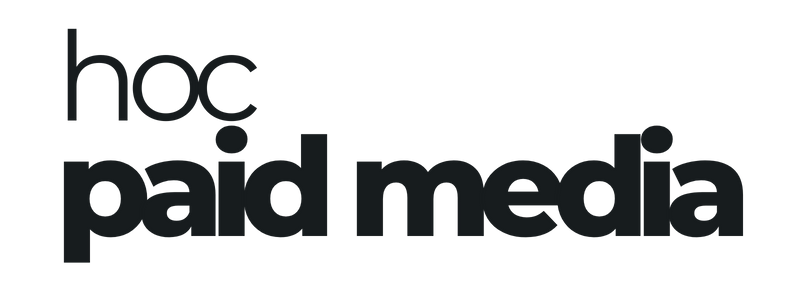How to Use Google Analytics with PPC Campaigns in 2025
Running a successful pay-per-click (PPC) campaign isn’t just about getting clicks—it’s about understanding what happens after the click. That’s where Google Analytics 4 (GA4) comes in.
With privacy regulations tightening and third-party cookies disappearing, GA4 has become an essential tool for tracking user behaviour, measuring performance, and optimising campaigns. If you’re not using it properly, you’re missing out on critical insights that can improve your ROI.
Here’s how to integrate GA4 with your PPC campaigns and use its features to make smarter advertising decisions.
1. Setting Up GA4 for PPC Campaigns
Before you start analysing data, you need to properly configure GA4 to track PPC performance accurately. Unlike Universal Analytics, GA4 is event-based, which means it tracks user actions in more detail.
How to Set Up GA4 for PPC:
- Link Google Ads to GA4 – This allows cost data, conversion tracking, and audience lists to sync automatically.
- Enable Enhanced Measurement – GA4 tracks user interactions like scrolls, clicks, and video plays without manual setup.
- Create Custom Events – Set up tracking for high-value actions such as form submissions or product interactions.
- Use UTM Parameters – Consistently tag PPC campaign URLs to ensure GA4 attributes traffic correctly.
By setting up GA4 correctly, you’ll get a complete picture of how your PPC traffic behaves—from ad click to conversion.
2. Understanding GA4’s New Data Model
One of the biggest shifts in GA4 is moving from session-based tracking (as in Universal Analytics) to event-based tracking. This gives advertisers a more detailed and user-centric view of how PPC traffic interacts with their site.
Key PPC Insights in GA4:
- Engaged Sessions – Tracks meaningful interactions rather than relying on bounce rates.
- Path Exploration – Visualises the user journey from clicking an ad to converting.
- Audience Overlap – Shows how PPC visitors interact with organic, social, or referral traffic sources.
With these insights, you can understand the full impact of your PPC campaigns beyond just the last-click attribution model.
3. Tracking Key PPC Metrics in GA4
GA4 introduces enhanced reporting tools that make it easier to track PPC performance and optimise ad spend.
Must-Track PPC Metrics in GA4:
- Cost Per Conversion (CPA) – See how much you’re paying for each lead or sale.
- Lifetime Value (LTV) – Predict how much revenue PPC-generated users will bring over time.
- Conversion Paths – Understand which keywords and campaigns contribute to multi-touch conversions.
- Engagement Rate – Replace bounce rate with a more accurate measure of user interaction.
Pro Tip: Set up custom dashboards in GA4 to monitor PPC-specific metrics alongside broader user engagement data.
4. Using Predictive Analytics to Improve PPC Performance
One of GA4’s most powerful features is predictive analytics, which uses AI to forecast which users are most likely to convert.
How Predictive Analytics Can Boost PPC:
- Purchase Probability – Target high-intent users more effectively.
- Churn Probability – Retarget users who may be about to abandon your site.
- Revenue Predictions – Focus ad spend on audiences expected to generate higher revenue.
This AI-driven approach ensures your budget is allocated to the highest-value opportunities.
5. Cross-Channel Attribution: Seeing the Full Picture
PPC campaigns don’t exist in isolation—users interact with multiple channels before making a decision. GA4’s advanced attribution models help advertisers see the bigger picture.
Attribution Models in GA4:
- Data-Driven Attribution – Assigns credit to each touchpoint based on its actual contribution.
- Multi-Channel Funnels – Shows how PPC works alongside organic search, email, and social media.
- Custom Attribution Windows – Adjusts reporting based on your sales cycle.
These insights allow you to optimise PPC budgets more effectively by understanding how different channels support conversions.
6. Optimising Landing Pages Using GA4 Insights
A high-performing PPC campaign is only as good as its landing page experience. GA4 provides detailed insights into how users interact with landing pages so you can make data-driven improvements.
Key GA4 Reports for Landing Page Optimisation:
- Scroll Tracking – See where users drop off and optimise page structure.
- Engagement by Device – Tailor pages for mobile vs. desktop users.
- Session Replays (via integrations) – Use tools like Hotjar to watch how PPC users navigate your site.
By leveraging these insights, you can reduce friction, improve conversions, and lower CPA.
7. Retargeting with GA4 Audiences in Google Ads
One of the best ways to improve PPC efficiency is by retargeting high-value users. GA4 allows you to build advanced audience segments based on real user behaviour.
Effective Retargeting Audiences in GA4:
- Cart Abandoners – Users who added items but didn’t complete checkout.
- Engaged Visitors – People who spent more than five minutes on your site but didn’t convert.
- High-Value Customers – Repeat buyers or those with a high predicted lifetime value.
Because GA4 updates audiences in real time, your retargeting efforts stay dynamic and relevant.
8. Using Real-Time Reporting to Make Quick Campaign Adjustments
In 2025, PPC success depends on agility. GA4’s real-time reporting tools help advertisers make instant campaign adjustments to optimise performance.
Key Real-Time Insights to Monitor:
- Traffic spikes from specific keywords or ads.
- New geographical trends showing high-performing regions.
- Sudden drops in engagement, signalling a landing page issue.
By responding quickly to these insights, you can adjust bids, tweak targeting, and fix issues before they impact ROI.
9. Staying Compliant with Privacy Regulations
As privacy laws evolve, ensuring compliance with GDPR, CCPA, and other regulations is critical. GA4 is built to be privacy-centric, but advertisers still need to take the right precautions.
How to Maintain PPC Compliance in GA4:
- Use GA4’s Consent Mode to respect user opt-ins and opt-outs.
- Enable IP Anonymisation to protect user identities.
- Review Data Retention Settings to align with legal requirements.
A strong privacy-first approach helps build trust while keeping your campaigns compliant.
10. AI’s Expanding Role in PPC and GA4
AI isn’t just assisting PPC campaigns—it’s transforming them. GA4 is increasingly using machine learning to automate insights, reporting, and recommendations.
How AI is Shaping PPC in 2025:
- Automated Insights – AI alerts you to trends and performance shifts.
- Bidding Recommendations – AI suggests bid adjustments based on historical data.
- Content & Ad Optimisation – AI predicts which ad creatives will perform best.
With AI continuously refining PPC strategies, advertisers who embrace automation will have a major competitive edge.
Final Thoughts: Why GA4 is Essential for PPC Success
Google Analytics 4 isn’t just another reporting tool—it’s a critical asset for running effective PPC campaigns. By integrating GA4 with Google Ads, you gain:
✔ Deeper audience insights for smarter targeting.
✔ Advanced attribution models for better budget allocation.
✔ Predictive analytics to anticipate user behaviour.
✔ Real-time monitoring to adjust campaigns instantly.
As PPC continues to evolve, staying ahead means fully leveraging GA4. Whether you’re running local campaigns or managing large-scale PPC operations, GA4’s data-driven insights will take your strategy to the next level.
























